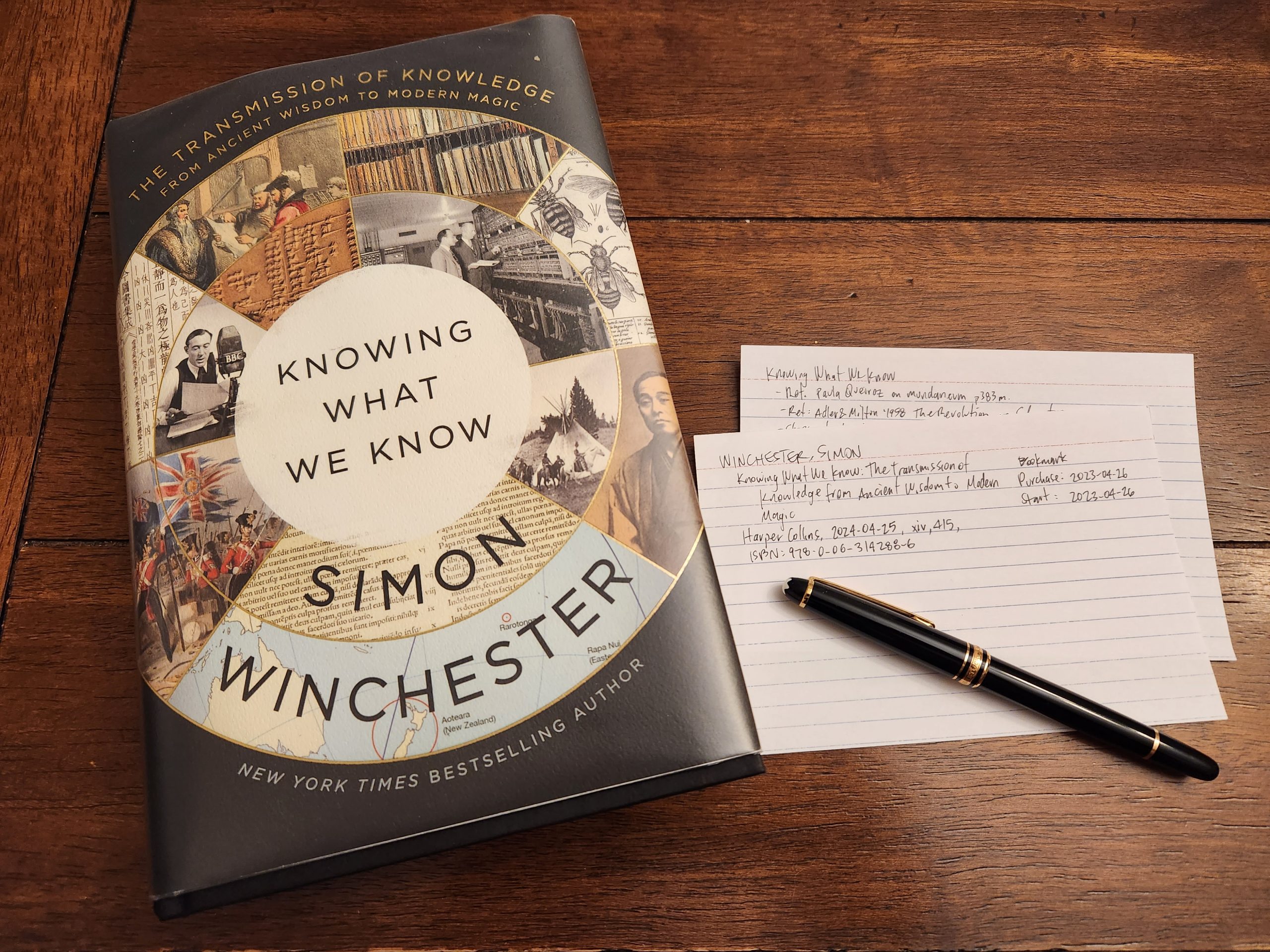Knowing What We Know: The Transmission of Knowledge From Ancient Wisdom to Modern Magic
In case some haven't been watching, I'll mention that Simon Winchester's new book Knowing What We Know on knowledge to transmission was published by Harper on April 25th in North America. For zettelkasten fans, you'll note that it has some familiar references and suggested readings including by our friends Markus Krajewski, Ann Blair, Iaian McGilchrist, Alex Wright, Anthony Grafton, Dennis Duncan, and Mortimer J. Adler to name but a few.
Many are certain to know his award winning 1998 book The Professor and the Madman which was also transformed into the eponymous 2019 film starring Sean Penn. Though he didn't use the German word zettelkasten in the book, he tells the story of philologist James Murray's late 1800s collaborative 6 million+ slip box collection of words and sentences which when edited into a text is better known today as the Oxford English Dictionary.
If you need some additional motivation to check out his book, I'll use the fact that Winchester, as a writer, is one of the most talented non-linear storytellers I've ever come across, something which many who focus on zettelkasten output may have a keen interest in studying.

website | digital slipbox 🗃️🖋️
No piece of information is superior to any other. Power lies in having them all on file and then finding the connections. There are always connections; you have only to want to find them. —Umberto Eco
Howdy, Stranger!
Comments
@chrisaldrich: When you post an Amazon affiliate link, I think it would be polite to disclose that you are doing so. I didn't know that the link you posted was an Amazon affiliate link until I did some web research about it now. Why quietly spam the forum with commercial affiliate links that pay you?
@Andy accept my apologies for that, I cut and pasted it from an automatic shortening tool that I use for composing on my own website without thinking about it.
website | digital slipbox 🗃️🖋️
Thanks to your recommendation, I was reading this on Kindle (which means I don't own my copy) when it occurred to me that I could never write for a general readership about my earliest memory of knowledge acquisition--in my case, that was my earliest memory. Simon Winchester writes about a wasp stinging his foot, but my earliest memory was of my father switching on the light in my room, leaning over my crib, and checking my diapers. "Let mommy do it," he said. This memory was formative.
GitHub. Erdős #2. Problems worthy of attack / prove their worth by hitting back. -- Piet Hein. Alter ego: Erel Dogg (not the first). CC BY-SA 4.0.